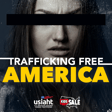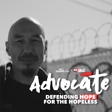
New Leadership, Same Mission: USIAHT's Vision for Ending Human Trafficking in America
In this deeply personal and powerful episode of the Trafficking Free America Podcast, co-host Jeremy Hicks sits down with Oree Freeman, the new Executive Director of the U.S. Institute Against Human Trafficking. A survivor-turned-national-advocate, Audrey opens up about her journey from trauma to healing—and her bold vision for transforming the anti-trafficking movement.
They discuss Kevin Malone’s transition to a federal role, the evolution of public understanding around trafficking, and what’s next for the organization and this podcast. Oree lays out a roadmap for survivor leadership, trauma-informed training, and how YOU can get involved.
🔔 Don’t forget to like, comment, and subscribe to join the mission of creating a Trafficking Free America.
⏱️ Timestamps:
00:00 – “You think I want to feel weak?” — Audrey gets real about the weight of reliving trauma
00:28 – Meet Oree Freeman: New Executive Director of USIAHT
01:44 – How Kevin & Marilyn Malone helped Oree go from survivor to servant leader
03:22 – Real relationships = real impact
05:06 – Building a championship team to end human trafficking
07:08 – The shift: from seeing trafficking as "too big" to something everyone can fight
08:26 – Kevin Malone joins HHS under RFK Jr. to advise on national trafficking strategy
10:36 – Oree's new vision: boots-on-the-ground + survivor-led leadership
16:21 – Why education must come before action
21:22 – 15 years ago: No language for "trafficking"—only "prostitution"
29:06 – Why we don’t “rescue” survivors—we walk with them through restoration
50:16 – What is an “Abolitionist Supporter”? And how you can become one today
📣 Join the Movement:
✅ Become an Abolitionist Supporter: usiaht.org/abolitionists
✅ Subscribe for more survivor-led conversations and trainings
✅ Share this video to raise awareness and recruit others into the fight
#HumanTrafficking #SurvivorLeadership #OreeFreeman #USIAHT #TraffickingFreeAmerica #AntiTrafficking #RestorationNotRescue #KevinMalone #RFKJr #AbolitionistMovement #EndHumanTrafficking #FaithAndFreedom #TraumaInformedCare #ChildProtection #PodcastHighlights #SurvivorVoices #FreedomFighters

